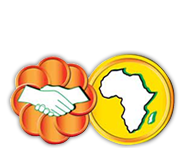Brief presentation of the country
Namibia, is a country of vast space ranging from forest to deserts. It is situated at the south-western coast of Africa. It neighbors South Africa, Angola, Botswana, Zambia and Zimbabwe, and got its independence in 1990.
Namibia is not only divers in its landscape that ranges from sea to sand dunes, but also in its culture - with 11 ethnic groups. The following information has been sourced from the [Namibia Population and Housing Census→ http://www.npc.gov.na/census/] (2001).
The 2001 Census is the second post-independence census; the first one had been undertaken in 1991.
Namibia’s Key Census Indicators, 2001 and 1991
| Population Size | 2001 | 1991 |
| Total | 1 830 330 | 1 409 920 |
| Females | 942 572 | 723 593 |
| Males | 887 721 | 686 327 |
| Growth Rate | 2.6 | 3.1 |
| In Urban/Rural, percent | ||
| Urban areas | 33 | 28 |
| Rural areas | 67 | 72 |
| Area:In square kilometres | 824 116 | 823 144 |
| Population density | ||
| Persons per sq. km. | 2.1 | 1.7 |
| Literacy rate, 15+years,percent | 81 | 76 |
| Labour force, 15+years, percent | ||
| In labour force | 54 | 58 |
| Employed | 69 | 81 |
| Unemployed | 31 | 19 |
